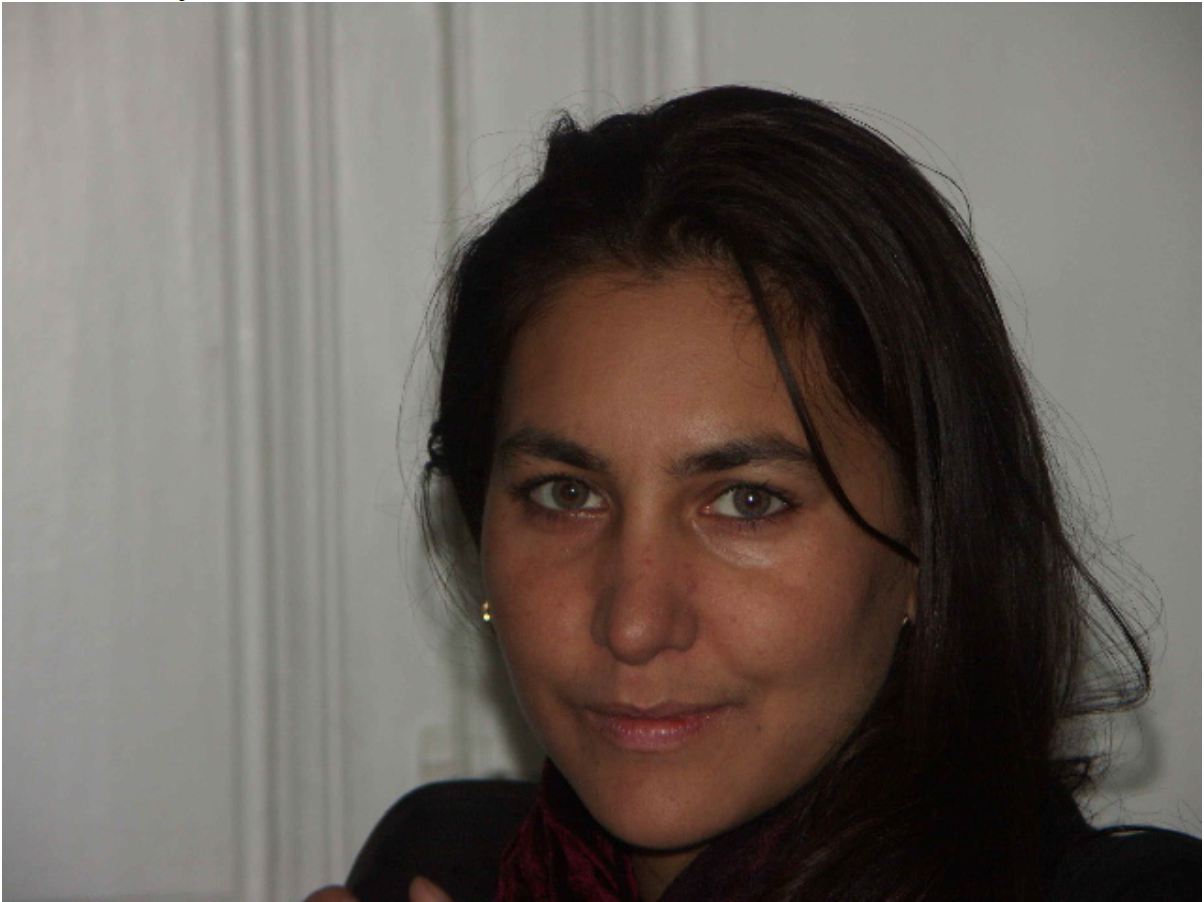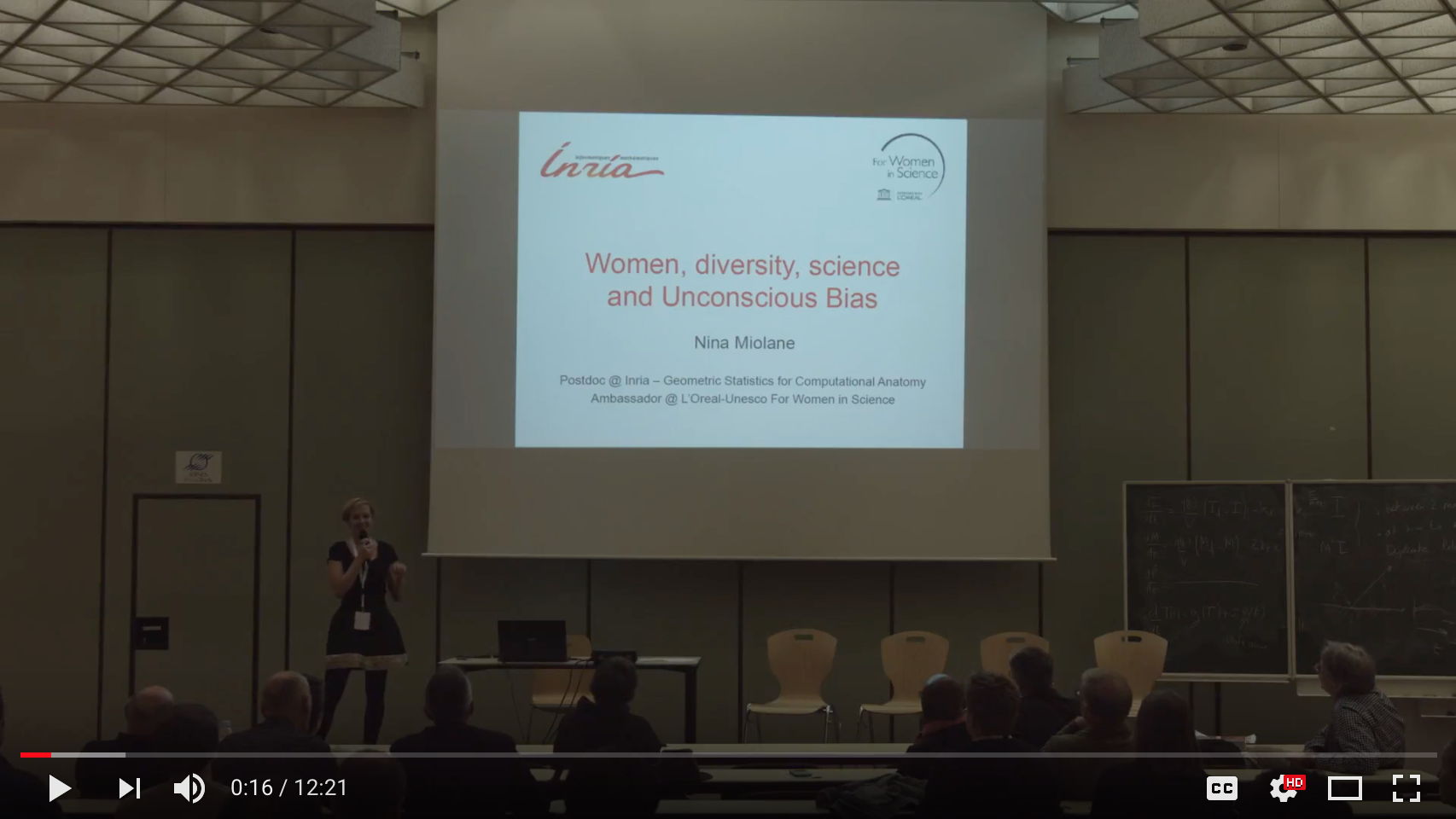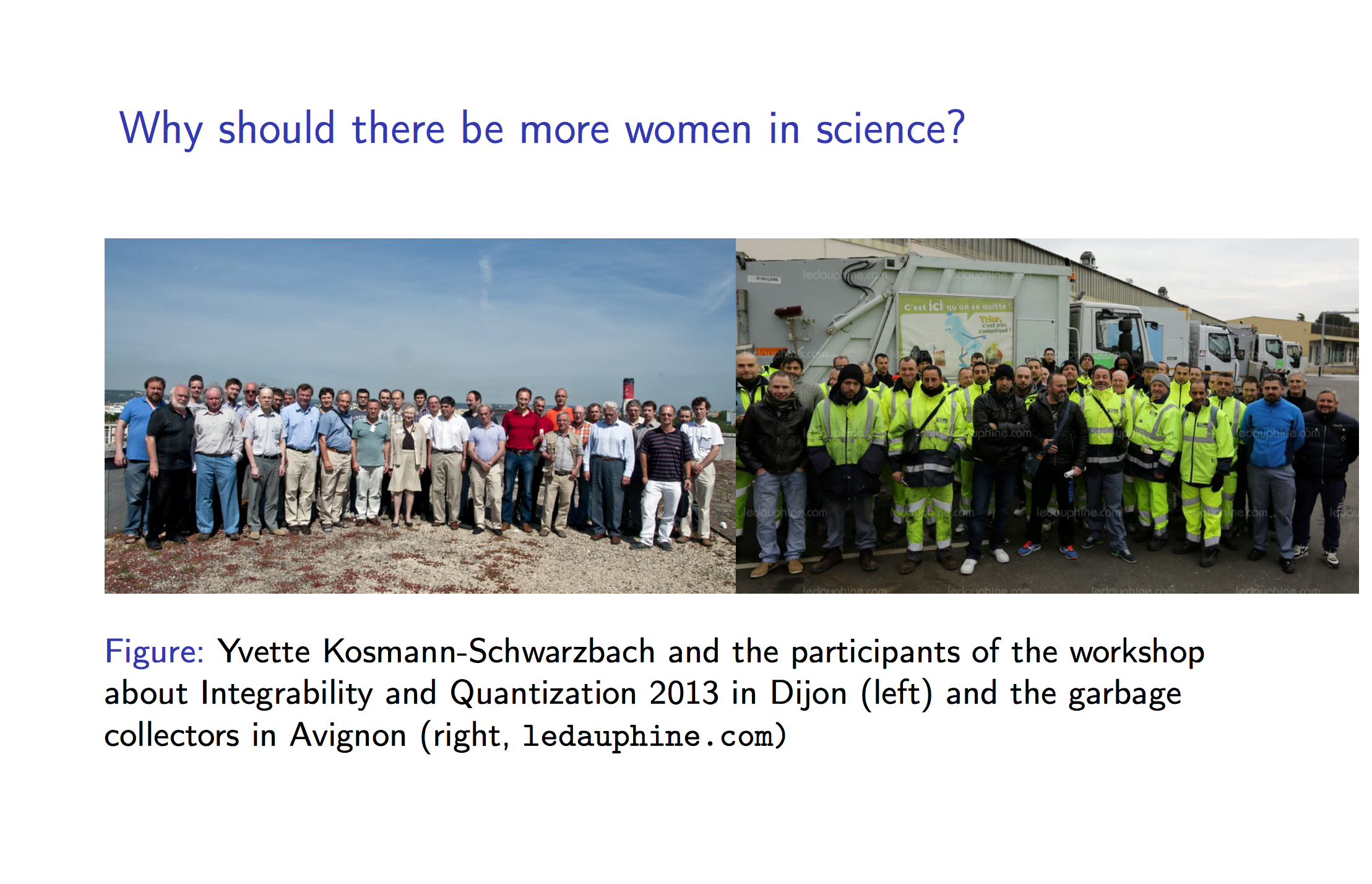
Garbage Collectors, the heroes of my childhood.
Garbage collectors are the first link in a chain that make our life easier and allow us to do something else then waste our time managing our waste. There is however a more personal reason that rises them to heroes of my childhood. When I was 14 years old I lost the friendship of my best friend. I was depressed for many many months, trying to understand what I did wrong, why wasn’t it working...As I was sitting on a bank, a garbage truck passed and a garbage man said to me these simple words: "Life is beautiful, go on!"
He did not say to me: "If you feel unhappy, kill yourself!" which would probably have had disastrous consequences, he was encouraging despite the fact that the problem seemed unsolvable (eventually the problem resolves, but it took 24+2 years...) I always remember this garbage man when hard time comes...
Let me translate this story in a math context for you.
If you see a collegue facing difficulties, being depressed because he’s trying hard to prove a theorem without success, don’t tell to him : "If you’re unhappy doing math, do something else" say "Math are beautiful, go on!" Because our hability to do math is also a matter of motivation, self-confidence, vital energy...
However, despite the fact that garbage men were the heroes of my childhood, I will not fight to increase the number of women in their community (perhaps I should....)
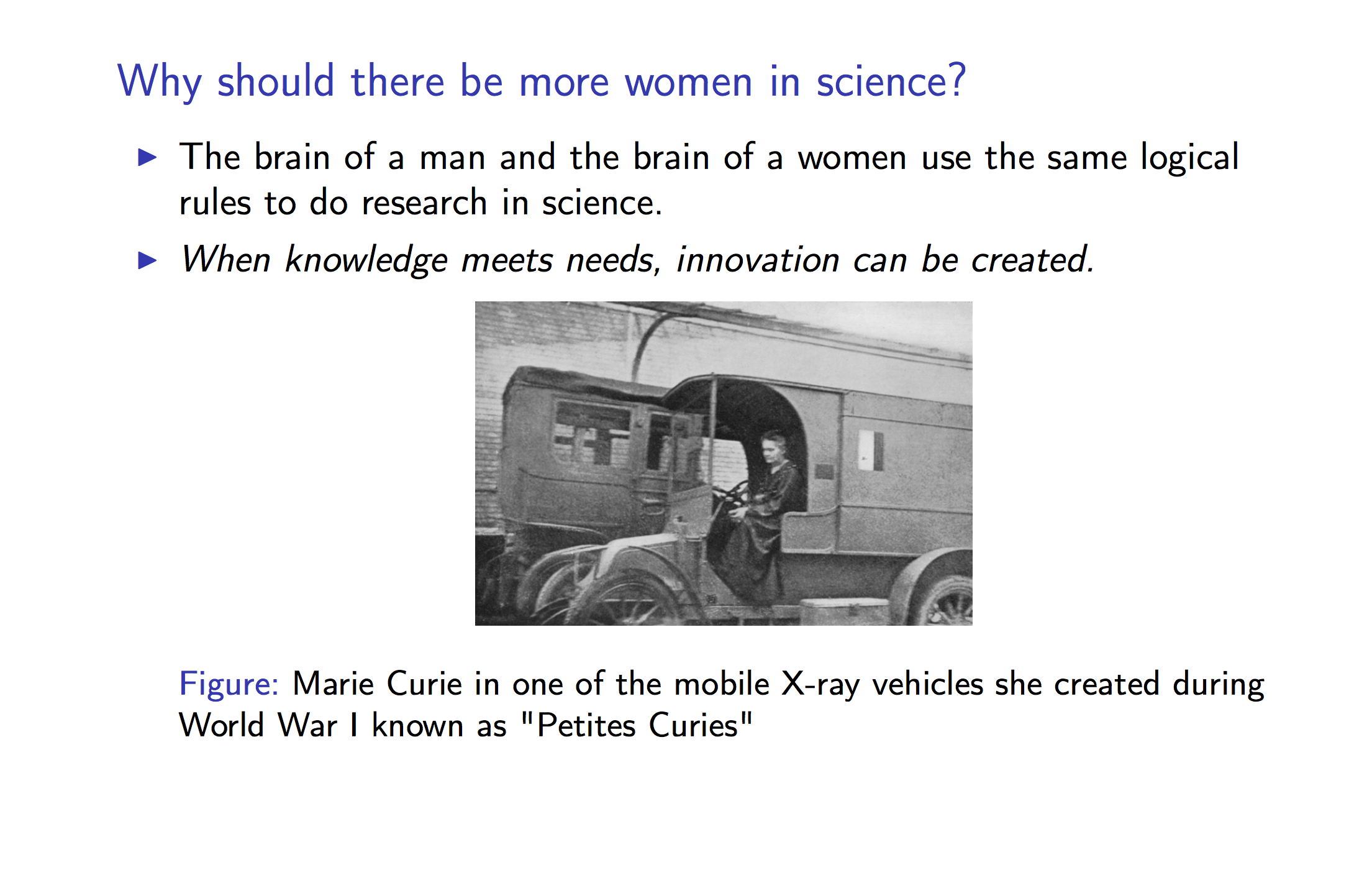
Why should there be more women in science?
Marie-Curie wanted to be helpful during the war. This was a very deep and personal feeling. Perhaps the loss of her husband Pierre Curie was also playing in the background. She wanted to save lifes. Using her knowledge in X-rays, and her ability to learn new things like radiology, anatomy, and automotive mechanics, she procured X-ray equipment, vehicles, auxiliary generators, and developed mobile radiography units, which came to be popularly known as petites Curies ("Little Curies"). Assisted at first by a military doctor and by her 17-year-old daughter Irène, Curie directed the installation of 20 mobile radiological vehicles and another 200 radiological units at field hospitals in the first year of the war. Later, she began training other women as aides. It is estimated that over a million wounded soldiers were treated with her X-ray units.
Marie Curie certainly wasn't alone in this undertaking, but she gave it the impetus, her vital-energy...This was enabled by the fact that she had the knowledge on one hand and the need on the other. Both were crucial.
We not only need women in science, we need diversity! Diversity in knowledges (we should never let a field die) and diversity in human needs and aspirations, sexual orientation, culture, religion...
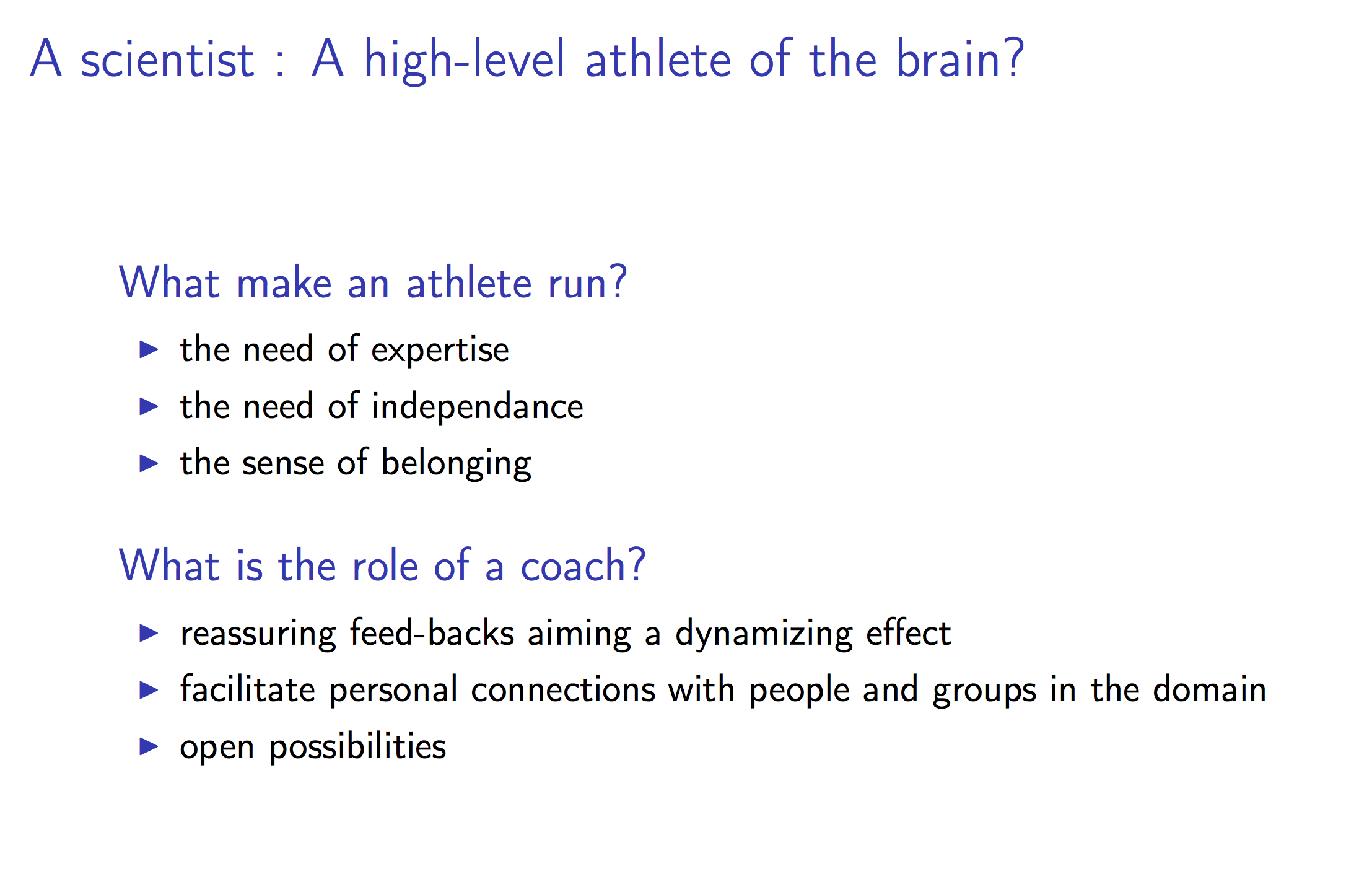
A scientist : A high-level athlete of the brain?
A researcher has a lot in commun with an athlete. Despite this, there is very few done in the scientific studies to prepare him/her mentally. In fact, a lot is done to discourage him/her, with often more negative consequences on her. However most of the abilities to become an outstanding researcher can be trained. The ability to concentrate on long period for instance is necessary to solve hard problems in math. In other areas, it would be commun to take a coach to train this, using meditation for instance. It took me a while to realise that so many abilities needed to be performant in math are independant of the "cleverness", and more importantly can be trained.
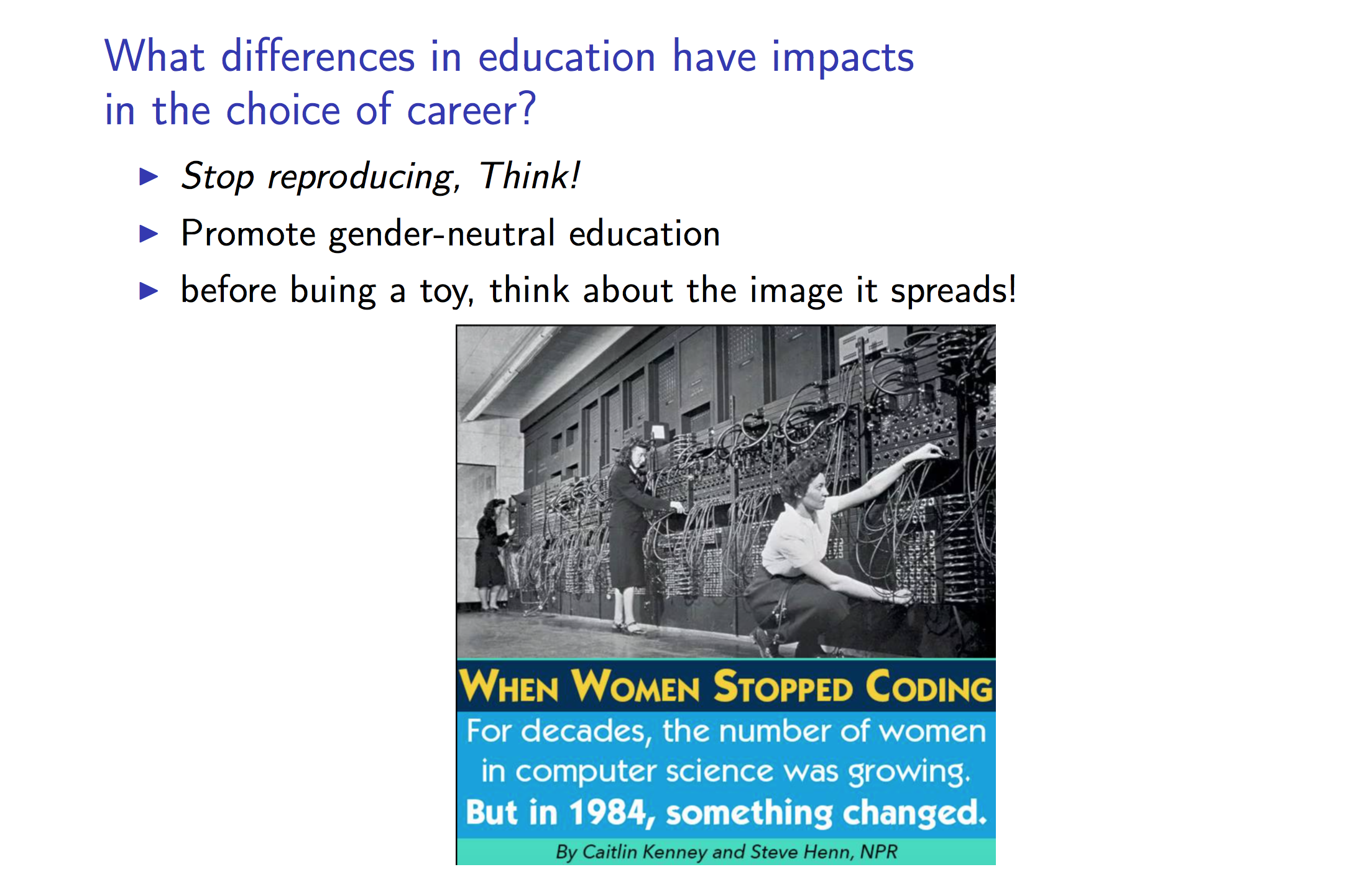
What differences in education have impacts in the choice of career ?
It seems that the reason why women stopped coding is that computers where designed as toys for boys. Just that. How stupid is that! What can we learn from the story? That there are invisible barriers that are included in our social environment. To identify them is not enough. To fight them is a long battle. Is the place of a woman at home, or is she more usefull at work? There is only one good answer to this question : give her the possibility to choose without social pressure, and she will know!
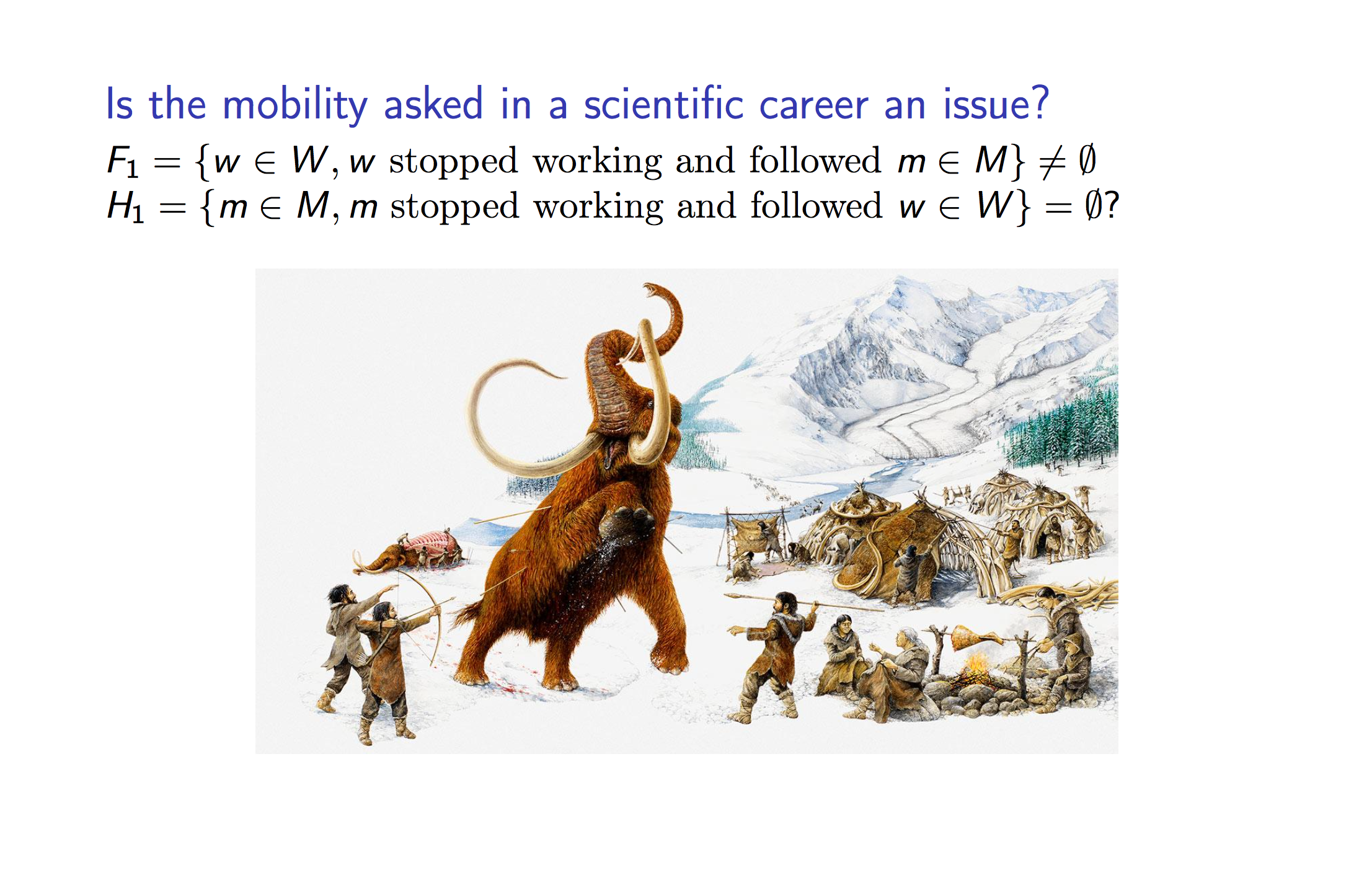
Is the mobility asked in a scientific career an issue ?
We are not equal in the support that we get from our families. Some female scientists resigned because their partner could not (or dare not) follow. But this is not only a question of gender. This is a question of social environment in general. It would do good to everyone if there were more diversity in the way the roles are dispatched inside families. Some men are still like fighting the mammoth. But there are no mammoth anymore. It would improve the life of many if men do not feel "less than" if their wifes earn more money than they do. In fact, this unconscious believe that men have to go and fight the mammoth is probably at the very heart of the difference of salary between men and women (-20% for women at the same level). Men have the right not to accept the social pressure that make them work harder to have a better job position and be the one that bring money home. Women can also take this responsability, and which is the most important, both may like it this way.
Good advice for men : Do not hesitate to support your partner to get a better position than yours, you don't need to feel destabilized in your virility if this happens, because your partner may like your support, and if your partner is feeling good, well, you may like it too!
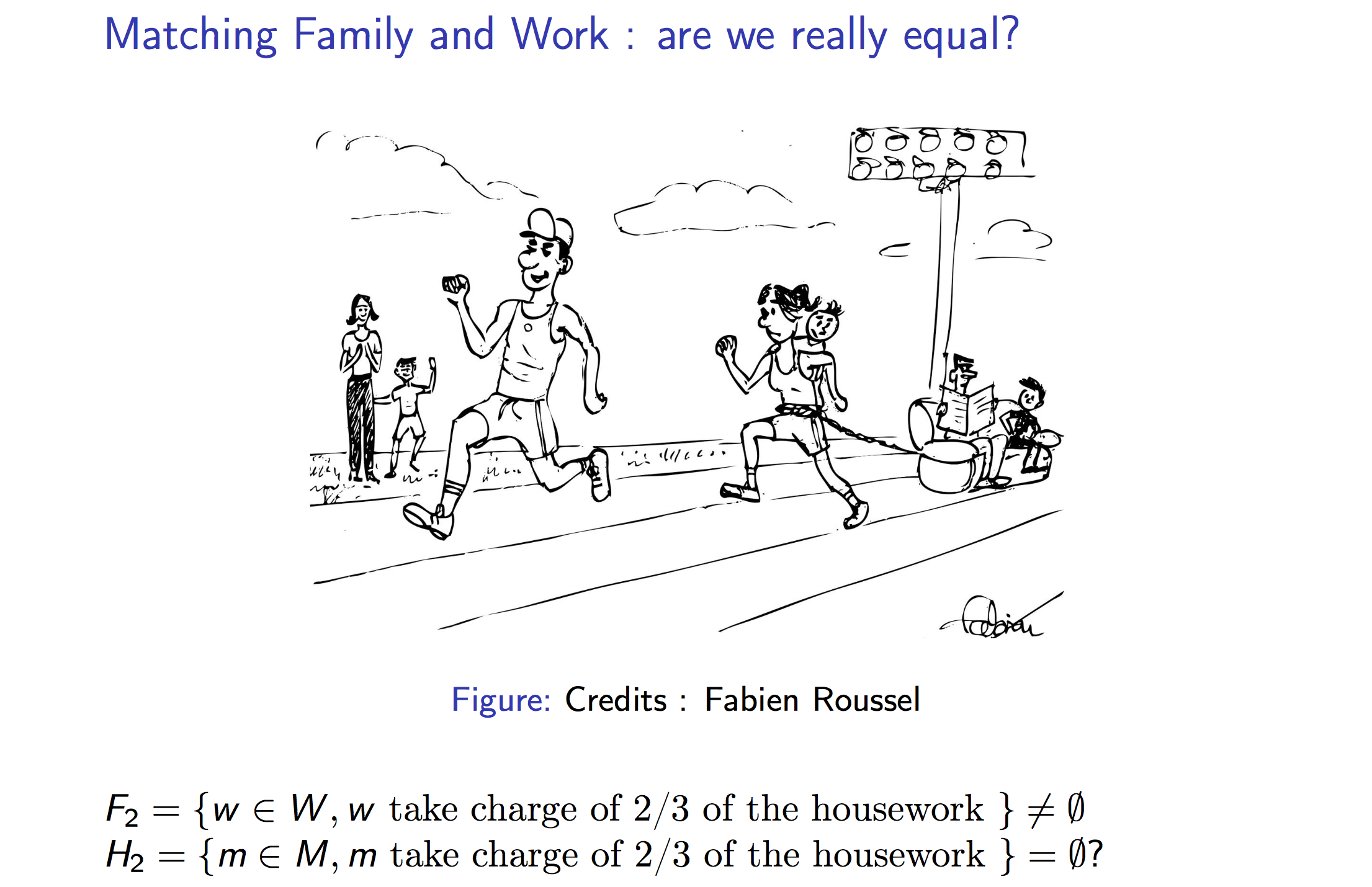
Matching Family and Work : are we really equal?
Maternity leaves, parental leaves, small childs make the attendance to workshops very difficult.
No workshops implies no connexions, loss of natural collaborations, loss of the sense of belonging which is one of the key motivation stone. All this is happening often in early scientific life. It is still commun that women take more of this family labor (although the situation has improved) and look more often after the children when they are small. By opposition, male scientists build their network at the same time, with a huge difference of opportunities at the end.
The different investment of women and men in everyday family life makes also a real difference in career. The mental charge and organization time is not equally distributed in general. Giving a name to this mental charge and the media coverage of it, made the lines move. The psychological charge that some men are putting on their partners in "not doing" the things that on commun consent where attributed to them (like bringing a child to a doctor) should also be mentionned. In "not doing", they press on a psychological lever that may make the partner do instead, by fear, compassion or for any other reason. The psychological charge is rising each time this situation occurs, leading to burn-outs whose number is exploding nowadays.
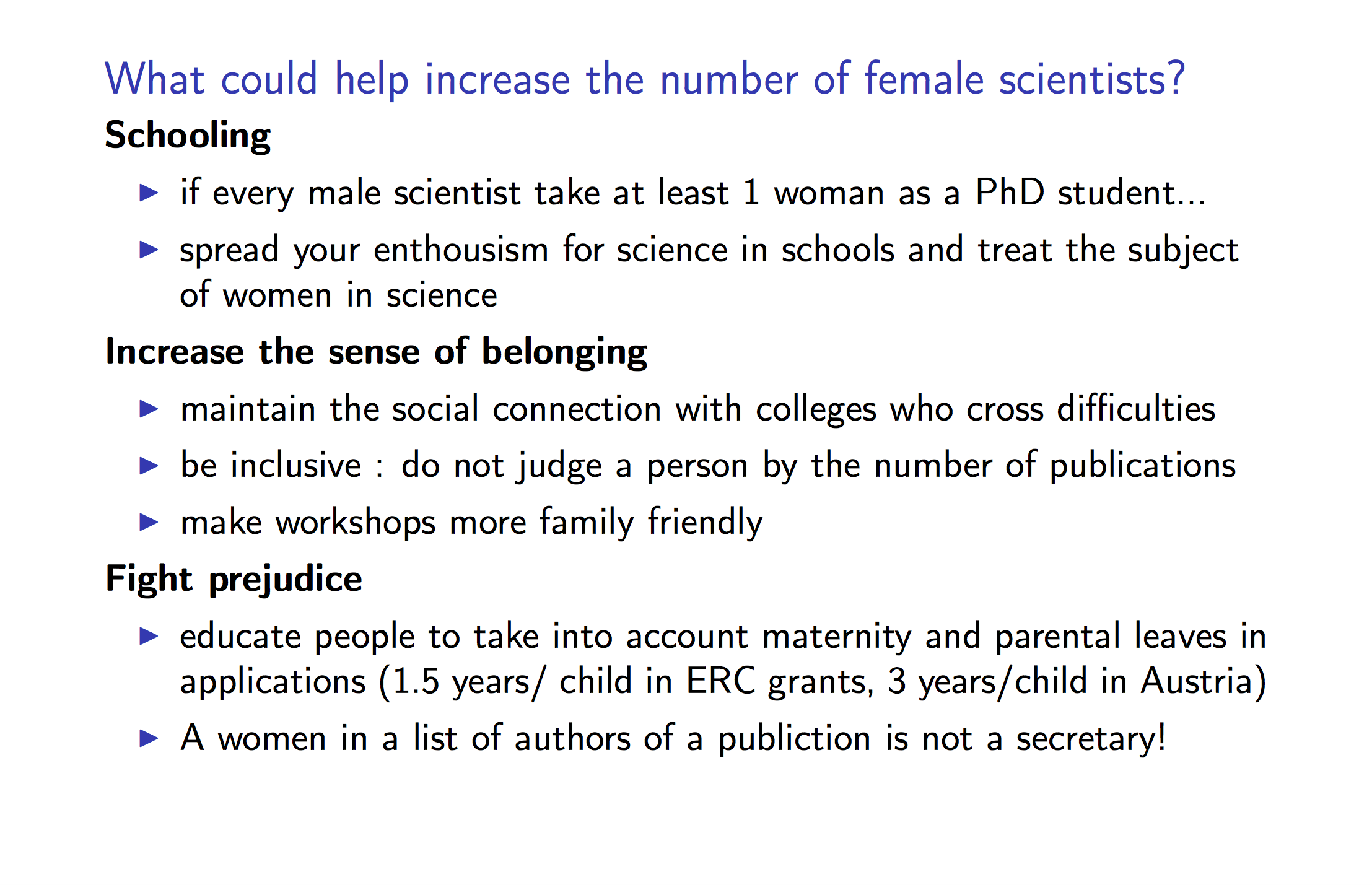
What could help increase the number of female scientists?
My mother said :
"Every human being should plant at least one tree in his life."
I would add :
"Every male scientist should raise at least one female scientist to the PhD level."
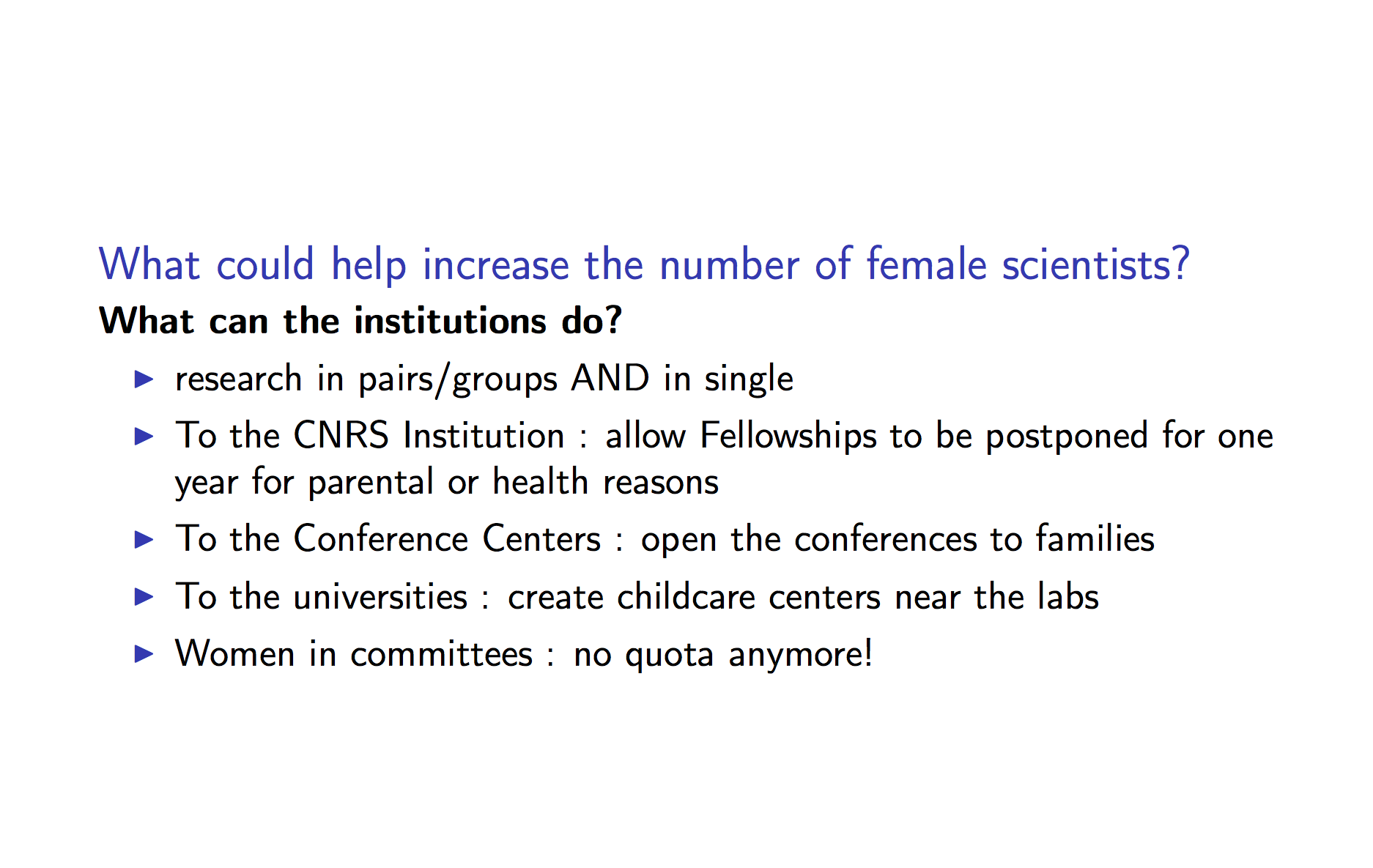
What can the Institutions do ?
The programs "Research in Pairs" consist in isolating two researcher that work together. It should be in some beautifull but empty place like the CIRM or Oberwolfach, with a huge library and nothing else to distract other than nature. In my early scientific life I would have loved to attend one of this program, to be release from my family duties for a week or two, without the pressure of a workshop and the question "what have you done recently?" ("I created a brain" should have been my answer!). But I haven't got the working partner to do this. I would have appreciate to be extracted from my environment to do research. I was thinking about applying to one of these programs "Research in Pairs" with my little me, the one that is trying hard to survive the years and pressure, and is at the heart of my motivation in research. I did not apply, but perhaps I will. Or perhaps programs "Research in Single" will come into existence?
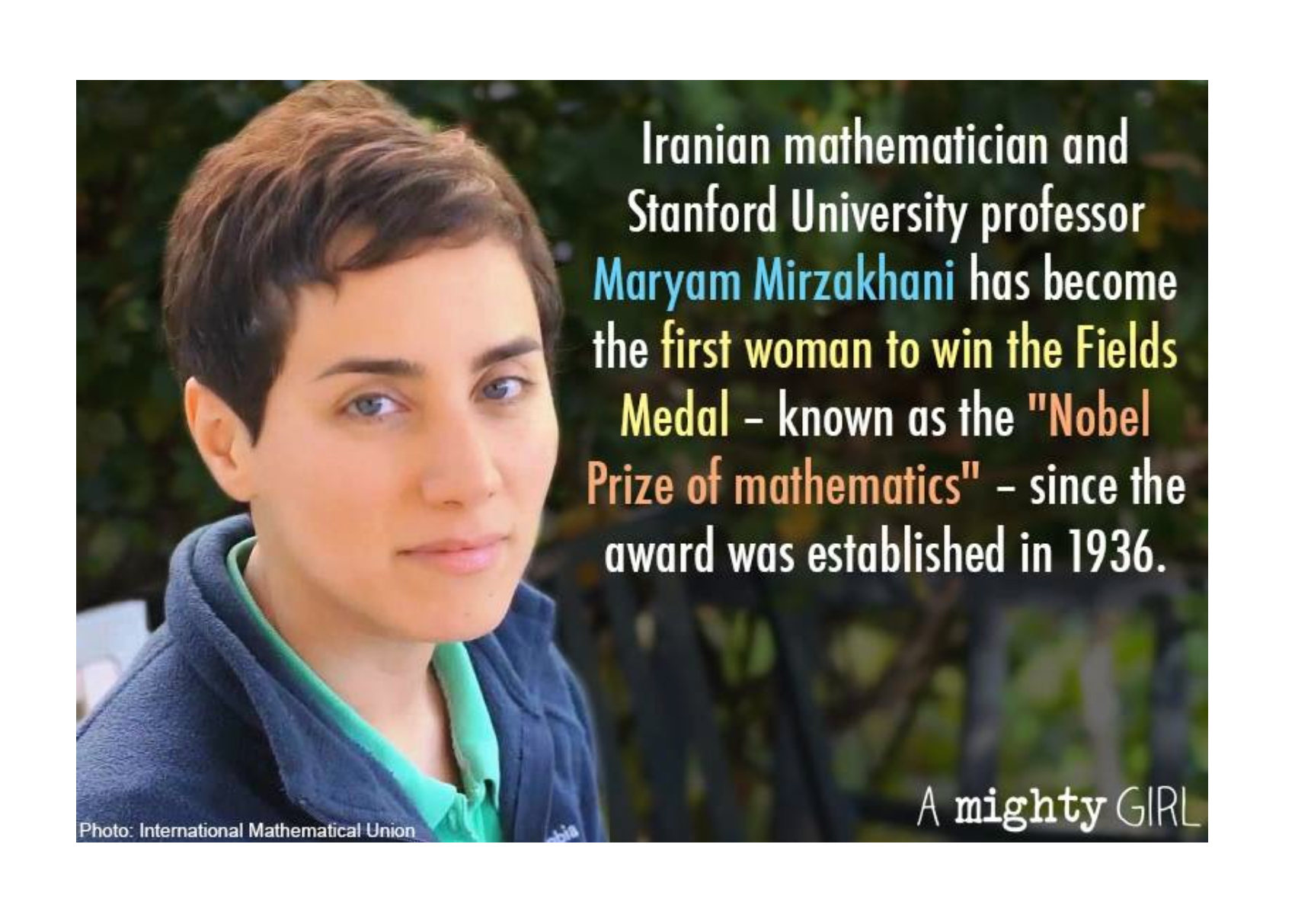
Maryam Mirzakhani
Her confidence in her ability to affront obstacles made her psychological strength. She died unfortunately on July 14, 2017, at the age of 40, but only physically, her math and the paths she followed remain.

